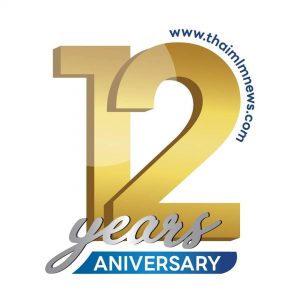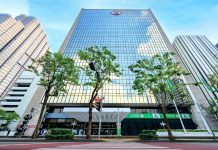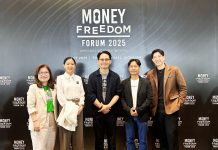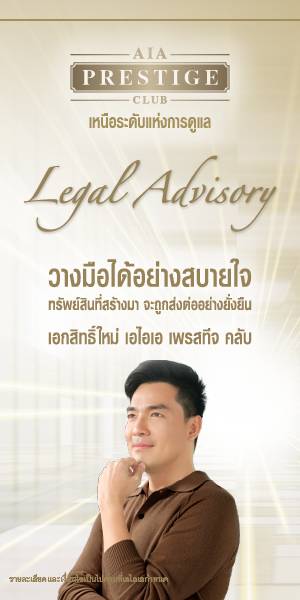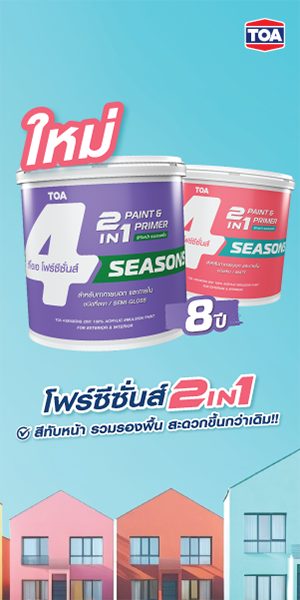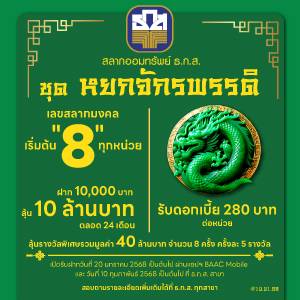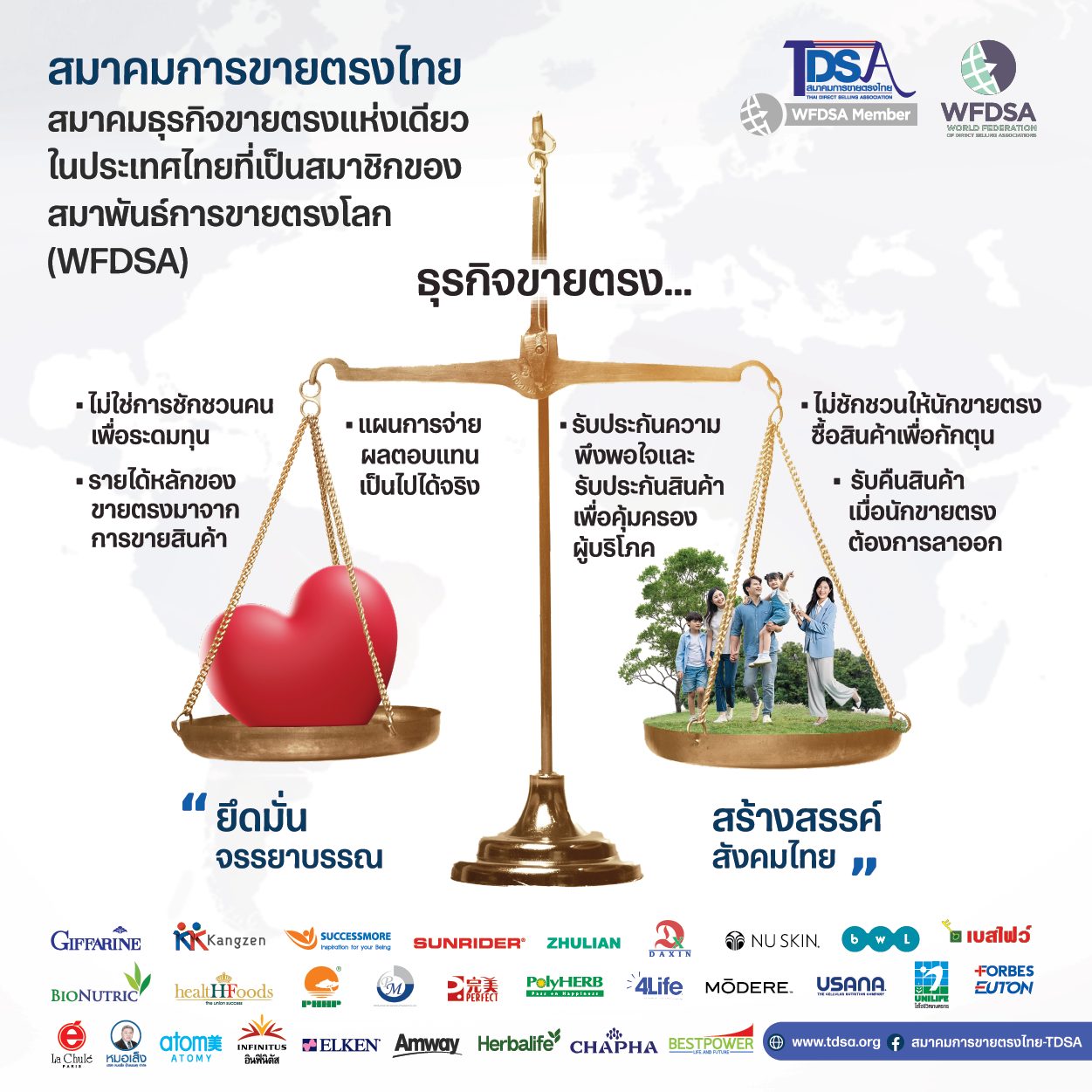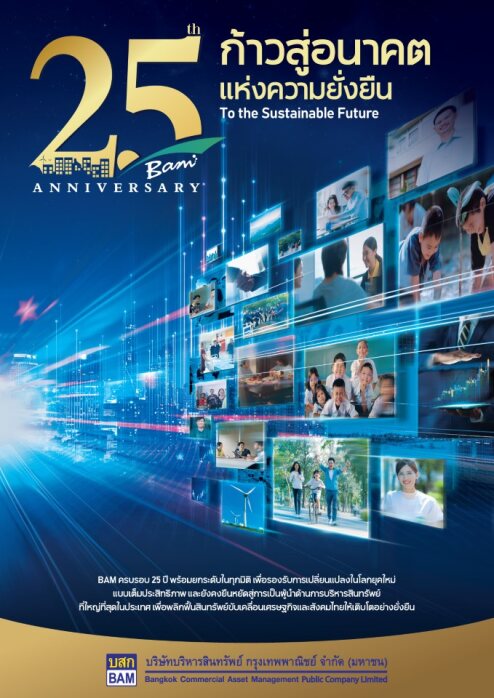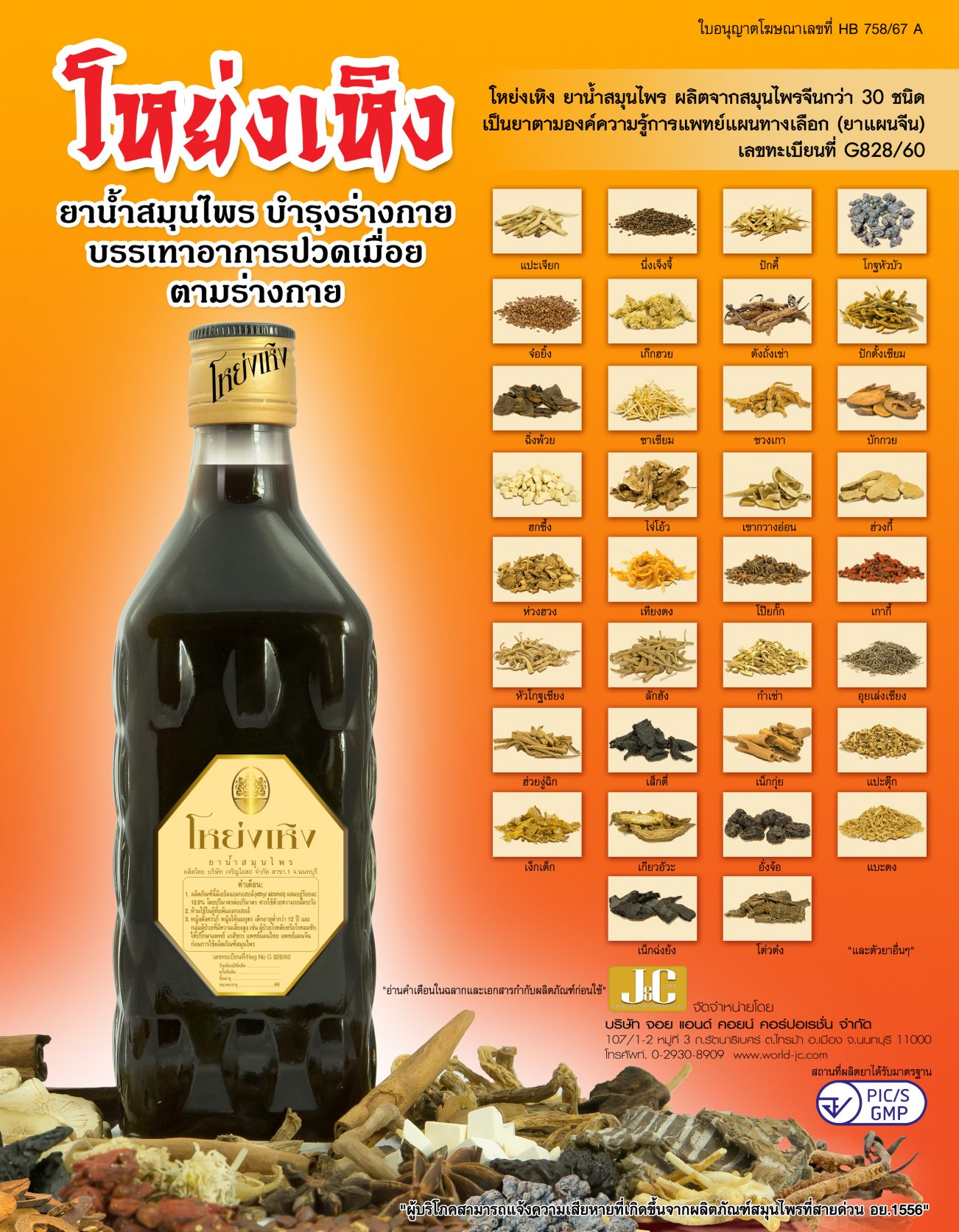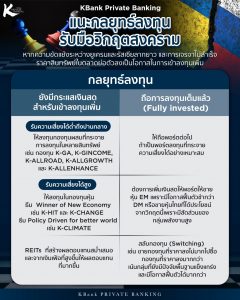
KBank Private Banking ร่วมกับ Lombard Odier พันธมิตรทางธุรกิจ ไพรเวทแบงก์ระดับโลกจากสวิตเซอร์แลนด์ เปิด 4 ความเป็นไปได้ (Scenarios) ของเหตุการณ์ความขัดแย้งระหว่างรัสเซียและยูเครน ซึ่งเป็นปัจจัยหลักขับเคลื่อนตลาดลงทุนในปัจจุบัน ส่งผลให้ภาพรวมตลาดหุ้นทั่วโลกยังปรับตัวลงอย่างต่อเนื่อง แนะนำให้นักลงทุนติดตามสถานการณ์อย่างใกล้ชิด อย่างไรก็ตาม ความขัดแย้งที่เกิดขึ้นและสถานการณ์ที่ปรับเปลี่ยนรายวัน ทำให้การคาดการณ์ทำได้ยาก KBank Private Banking ในฐานะผู้นำให้บริการบริหารความมั่งคั่งและผู้เชี่ยวชาญการลงทุน พร้อมเผยกลยุทธ์การจัดพอร์ตลงทุนที่เหมาะสมเพื่อรับมือวิกฤตในครั้งนี้

นายจิรวัฒน์ สุภรณ์ไพบูลย์ Private Banking Group – Executive Chairman ธนาคารกสิกรไทย เปิดเผยว่า นอกเหนือจากปัจจัยด้านเงินเฟ้อที่พุ่งขึ้นแรงจะส่งผลกระทบต่อตลาดหุ้นทั่วโลก ในช่วง 1 เดือน ที่ผ่านมา ยังมีอีกเหตุการณ์ที่ซ้ำเติมและสร้างความกังวลให้กับนักลงทุนเพิ่มขึ้นอีก นั่นก็คือความขัดแย้งระหว่างรัสเซียและยูเครน อย่างไรก็ตาม หากย้อนไปมองเหตุการณ์ความขัดแย้งไปจนถึงสงครามโลกครั้งที่ 2 โดยเฉลี่ยส่งผลกระทบต่อตลาดหุ้นสหรัฐฯ ที่ปรับตัวลงในวันที่เกิดเหตุการณ์เฉลี่ยเพียง 1.5% เท่านั้น และปรับลงสูงสุดเฉลี่ยที่ 5.4% โดยระยะเวลาเฉลี่ยในการลงสู่จุดต่ำสุด คือ 15 วัน และ ใช้เวลา 35 วันเพื่อฟื้นตัวกลับมาอยู่ในระดับเดิม อย่างไรก็ตาม สถานการณ์ระหว่างรัสเซียและยูเครนปรับเปลี่ยนรายวัน ด้านรัสเซียเริ่มเสียหายมากขึ้น จากการที่นานาชาติพากันคว่ำบาตรทางเศรษฐกิจ ผลที่ตามมาคือราคาน้ำมันพุ่งขึ้นอย่างต่อเนื่อง และอาจส่งผลกระทบระยะยาวต่อราคาพลังงานหากสงครามยืดเยื้อ เพราะยุโรปอาจเลิกคบค้าและซื้อขายพลังงานกับรัสเซียไปเลย ทำให้ภาวะเงินเฟ้อจะอยู่ยาว ในขณะที่อัตราการเติบโตทางเศรษฐกิจของโลกชะลอตัว ส่งผลกระทบต่อตลาดการลงทุนอย่างต่อเนื่อง ตลาดหุ้นทั่วโลกปรับลดลงอย่างรวดเร็วและรุนแรงมากกว่าที่คาดการณ์ จนนักลงทุนส่วนใหญ่เกิดคำถามว่าควรปรับพอร์ตหรือไม่ และปรับพอร์ตอย่างไรให้เหมาะสมกับวิกฤตในครั้งนี้

ดร.แซมมี่ ชาร์ หัวหน้าทีมนักเศรษฐศาสตร์ Lombard Odier มองเหตุการณ์ความขัดแย้งระหว่างรัสเซีย-ยูเครน แบ่งเป็น 4 ความเป็นไปได้ ดังนี้
- กรณีฐาน – ความขัดแย้งระหว่างยูเครนและรัสเซียลากยาว การเจรจาไม่สำเร็จ (โอกาสเกิด 50%) ส่งผลให้อัตราเงินเฟ้อสูงทั่วโลก จากราคาสินค้าโภคภัณฑ์ที่สูงขึ้น และห่วงโซ่อุปทานที่ชะงักไปจากมาตรการคว่ำบาตร การเติบโตเศรษฐกิจโลกชะลอตัวลง โดยเฉพาะในยุโรป โดย Lombard Odier ประมาณการณ์ว่า GDP ยุโรปจะปรับลด -1% ส่วนสหรัฐฯ -0.5% ในขณะที่ธนาคารกลางทั่วโลกเดินหน้าเข้มงวดนโยบายการเงิน
- กรณีดี – รัสเซียและยูเครน สามารถเจรจากันได้ บรรลุข้อตกลง แต่ยังคงมีมาตรการคว่ำบาตรบางส่วน (โอกาสเกิด 20%) ส่งผลให้เศรษฐกิจโลกกลับมาฟื้นตัวได้ดี ในขณะที่ ราคาสินค้าโภคภัณฑ์จะยังคงทรงตัวในระดับสูง แต่อยู่ในระดับจัดการได้ เงินเฟ้อค่อยๆ ปรับลดลง
- กรณีเลวร้าย – ความขัดแย้งระหว่างรัสเซียและยูเครนรุนแรงขึ้น มีการคว่ำบาตรที่รุนแรงขึ้น (โอกาสเกิด 20%) ส่งผลให้เศรษฐกิจโลกได้รับผลกระทบอย่างมีนัยสำคัญ แต่ Lombard Odier มองว่าไม่ถึงขั้นทำให้เศรษฐกิจถดถอย (Recession) เพราะปัจจุบันกิจกรรมเศรษฐกิจโลก ไม่ได้พึ่งพาน้ำมันมากเท่าในอดีต และก่อนหน้านี้เศรษฐกิจโลกถือว่าอยู่ในเกณฑ์ดีมากหลังกิจกรรมทางเศรษฐกิจทยอยฟื้นตัวจากสถานการณ์การแพร่ระบาดของโควิด 19 เริ่มคลี่คลาย นอกจากนี้ รัฐบาลแต่ละประเทศจะออกมาตรการมาพยุงเศรษฐกิจ เช่น ช่วยเหลือค่าครองชีพกลุ่มคนรายได้น้อย เพื่อให้เศรษฐกิจไปต่อได้
- กรณีเลวร้ายที่สุด – ความขัดแย้งขยายไปทั่วโลก (โอกาสเกิด 10%) ส่งผลให้เศรษฐกิจโลกมีโอกาสเข้าสู่ภาวะถดถอย และมีโอกาสเกิดวิกฤตทางการเงิน ธนาคารกลางทั่วโลกจะชะลอการออกนโยบายเข้มงวด เน้นดำเนินนโยบายเพื่อรักษาเสถียรภาพทางการเงิน

นางสาวศิริพร สุวรรณการ Senior Managing Director-Financial Advisory Head ธนาคารกสิกรไทย เปิดเผยแนวทางการปรับพอร์ตการลงทุนว่า ความขัดแย้งที่เกิดขึ้นจะส่งผลกระทบต่อเศรษฐกิจและการลงทุนจะมากหรือน้อยนั้น ก็ขึ้นอยู่กับระยะเวลาและความรุนแรงของมาตรการคว่ำบาตร เช่น หากวิกฤตกระทบเศรษฐกิจมากและประเทศขนาดใหญ่ไม่มีมาตรการสนับสนุนเศรษฐกิจหรือชะลอความเข้มงวดด้านนโยบาย อาจส่งผลต่อราคาสินทรัพย์ที่แม้จะฟื้นตัวได้เร็วเมื่อวิกฤตคลี่คลาย แต่ก็จะยังไม่สามารถสร้างผลตอบแทนกลับคืนมาในช่วงเวลาสั้นๆ อย่างไรก็ตาม KBank Private Banking มองว่ามีโอกาสถึง 50% ที่ความขัดแย้งระหว่างยูเครนและรัสเซียลากยาว และการเจรจาไม่สำเร็จ ดังนั้นในช่วงสถานการณ์เช่นนี้ที่ราคาสินทรัพย์ในตลาดย่อตัวลงถือเป็นโอกาสในการเข้าลงทุน โดยแนะนำกลยุทธ์การลงทุนให้แก่ลูกค้าบุคคลสินทรัพย์สูงใน 2 กรณี ได้แก่
- กรณีที่ยังมีกระแสเงินสดสำหรับเข้าลงทุนเพิ่ม และสามารถถือการลงทุนได้นานกว่า 3 ปีขึ้นไป หรือ มีการลงทุนในสินทรัพย์ที่มีสภาพคล่องสูง เช่น กองทุนที่ซื้อขายได้ทุกวันทำการเป็นสัดส่วนการลงทุนหลัก สิ่งแรกที่นักลงทุนต้องพิจารณาก็คือความเสี่ยงที่รับได้ หรือ Risk Profile ของตนเอง เช่น รับความเสี่ยงได้ต่ำถึงปานกลาง แนะนำให้ลงทุนเพิ่มในกองทุนผสมที่กระจายการลงทุนในหลายๆ สินทรัพย์ เช่น กองทุน K-GA, K-GINCOME, K-ALLROAD, K-ALLGROWTH และ K-ALLENHANCE แต่หากรับความเสี่ยงได้สูง แนะนำให้ลงทุนในกองทุนหุ้น อย่าง K-HIT และ K-CHANGE ภายใต้ธีม Winner of New Economy เนื่องจากพื้นฐานยังคงแข็งแกร่งในระยะยาว กระจายลงทุนในหลายๆ กลุ่มธุรกิจในทุกภูมิภาคทั่วโลก และถูกเทขายหนักจากความกังวลในตลาด ซึ่งหากสถานการณ์ความขัดแย้งคลี่คลายจะมีโอกาสฟื้นตัวได้เร็วและแรงกว่าหุ้นกลุ่มอื่นๆ และ กองทุน K-CLIMATE ภายใต้ธีม Policy Driven for better world ซึ่งถือเป็นธีมการลงทุนที่สอดคล้องไปกับกระแสหลักของโลก (Mega Trend) ที่ราคาปรับลงไม่มากเมื่อเทียบกับหุ้นกลุ่มอื่นๆ นอกจากนี้ยังแนะนำให้ลงทุนใน REITs หรือ กองทรัสต์เพื่อการลงทุนในอสังหาริมทรัพย์ ที่สร้างผลตอบแทนสม่ำเสมอ และจากภาวะเงินเฟ้อที่เพิ่มสูงขึ้นยังสร้างผลตอบแทนที่มากขึ้นอีกด้วย
- กรณีที่ถือการลงทุนเต็มแล้ว (Fully invested) สิ่งที่ต้องทำอย่างแรกคือให้พิจารณาว่าพอร์ตการลงทุนเป็นพอร์ตลงทุนระยะยาวที่กระจายความเสี่ยงได้อย่างเหมาะสมอยู่แล้วหรือไม่ หากคำตอบคือใช่ แนะนำให้ถือพอร์ตต่อไปเพราะมีโอกาสที่สถานการณ์จะคลี่คลายไปในทางที่ดีขึ้น อย่างไรก็ตาม หากนักลงทุน อยากเพิ่มเงินสดให้พอร์ต แนะนำให้ขายหุ้นกลุ่มตลาดเกิดใหม่ เพราะมีโอกาสฟื้นตัวช้ากว่าตลาดหุ้นกลุ่มประเทศพัฒนาแล้ว หรือขายหุ้นไทย ที่ได้ประโยชน์จากวิกฤตครั้งนี้ เพราะมีสัดส่วนของกลุ่มพลังงานสูง นอกจากนี้ แนะนำให้สลับกองทุน (Switching) เช่น ขายกองทุนที่ราคาลงไม่มากไปซื้อกองทุนที่ราคาลงมากกว่า โดยเน้นกลุ่มที่ยังมีปัจจัยพื้นฐานแข็งแกร่ง และมีโอกาสฟื้นตัวได้มากกว่า อย่างไรก็ตาม การสลับกองทุนจะมีค่าธรรมเนียม และต้องประเมินกลยุทธ์ลงทุนประอบด้วย

นายจิรวัฒน์ สุภรณ์ไพบูลย์ กล่าวในตอนท้ายว่า วิกฤตที่เกิดขึ้นจากความขัดแย้งระหว่างรัสเซียและยูเครน ส่งผลให้ราคาสินทรัพย์ตกลงอย่างรวดเร็วและรุนแรง KBank Private Banking ยังคงคำแนะนำให้นักลงทุนที่มีพอร์ตการลงทุนที่เป็นพอร์ตระยะยาวและมีการกระจายความเสี่ยงอย่างเหมาะสมให้ถือพอร์ตต่อไป และธนาคารจะติดตามสถานการณ์อย่างใกล้ชิดเพื่อปรับพอร์ตและกลยุทธ์การลงทุนให้เหมาะสมในทุกสถานการณ์เพื่อสร้างผลตอบแทนที่น่าพึงพอใจให้กับพอร์ตการลงทุนของลูกค้าได้ในปี 2565 นี้
หมายเหตุ: ตำแหน่งผู้บริหารเขียนทับศัพท์ภาษาไทย
นายจิรวัฒน์ สุภรณ์ไพบูลย์ ไพรเวท แบงกิ้ง กรุ๊ป-เอ๊กซคูทีฟ แชร์แมน ธนาคารกสิกรไทย
นางสาวศิริพร สุวรรณการ ซีเนียร์ แมเนจิ้ง ไดเรคเตอร์- ไฟแนนเชียล แอดไวเซอรี เฮด ธนาคารกสิกรไทย
ดร.แซมมี่ ชาร์ หัวหน้าทีมนักเศรษฐศาสตร์ ลอมบาร์ด โอเดียร์
KBank Private Banking and Lombard Odier identify four scenarios of the Russia-Ukraine conflict while unveiling investment strategies for coping with the crisis; investors are advised to diversify their portfolios via mixed funds, focusing on stocks under the “Winner of the New Economy” theme and sustainability trends which are likely to rebound after the situation is resolved.
KBank Private Banking (KPB) and its strategic alliance Lombard Odier, a world-class Swiss private bank, have identified four scenarios of the Russia-Ukraine war – the key factor that has rocked stock markets worldwide. Investors are recommended to keep abreast of the latest developments. The fluid nature of the situation makes it almost unpredictable. KPB – at the forefront in wealth management and investment expertise – has advised investors to arrange their portfolios to efficiently cope with this crisis.
Mr. Jirawat Supornpaibul, Private Banking Group – Executive Chairman of KASIKORNBANK, noted that the Russia-Ukraine conflict has exacerbated volatility in global stock markets, which have already borne the brunt of soaring inflation over the past month amid rising investor concern. Based on historical data since World War II, the US stock market saw its prices drop by only 1.5 percent on average on the day a crisis erupted, while nosediving from the highs by around 5.4 percent. Meanwhile, the average duration for stock prices to fall to their trough was 15 days, while it took 35 days for them to rebound to pre-crisis levels. As the Russia-Ukraine crisis continues to unfold, Russia has increasingly felt the pinch of economic sanctions issued by various countries, while global oil prices initially soared. A protracted war may cause energy prices to remain at elevated levels for a substantial period, especially if Europe permanently imposes sanctions against Russia’s oil shipments. Under these circumstances, inflationary pressure would be prolonged. Meanwhile, global economic growth has been sluggish, and this has continually affected investment markets. As worldwide stock exchanges have become more volatile than expected, most investors are uncertain whether or not they should adjust their portfolios, and what is the best adjustment amid this crisis.
Dr. Sammy Chaar, Chief Economist at Lombard Odier, has assessed that there are four scenarios of development of the conflict between Russia and Ukraine, as follows:
- Base-case scenario – Prolonged conflict and failed negotiations (50 percent possibility): Inflation will heighten across the globe, following rising commodity prices and supply chain disruptions caused by sanctions. Global economic growth will slow, especially in Europe. Lombard Odier’s forecast is that GDP growth will drop 1 percent in Europe and 0.5 percent in the US. In this context, worldwide central banks will resort to more stringent monetary policies.
- Best-case scenario – Russia and Ukraine are able to come to an agreement, but some sanctions would remain in effect (20 percent possibility): The global economy would resume satisfactory recovery. High commodity prices would persist, but at manageable levels. Inflation would gradually decrease.
KPB_Russia-Ukraine page 1 from 3
- Worse-case scenario – Conflict between the two countries escalates and sanctions further intensify (20 percent possibility): This scenario would significantly impact the global economy. However, Lombard Odier holds the view that recession would not occur, due to the fact that global economic activity is not as heavily dependent on oil as in the past, and up to now, the global economy was in a very healthy position after gradual recoveries of various activities as the COVID-19 crisis eased. In addition, a number of measures have been launched by the governments of each country to sustain economic growth, for example, assistance for low-income earners’ living expenses.
- Worst-case scenario – Worldwide expansion of conflict (10 percent possibility): The world economy would likely enter recession, and financial crisis may arise. All central banks would delay stringent policies and shift to a policy of maintaining financial stability.
Regarding investment portfolio adjustment guidelines, Ms. Siriporn Suwannakarn, Senior Managing Director – Financial Advisory Head of Private Banking Group, KASIKORNBANK said that the magnitude of the Russia-Ukraine conflict’s impact on the economy and investment will depend upon its severity and the duration of its sanctions. For instance, if the crisis has a substantial impact on the economy, and large countries have no measures to support their economies or are too slow to implement stringent policies, asset values may be affected. Although asset values could recover quickly once the crisis eases, returns may not be recouped within a short period. However, KPB holds the view that there is a 50-percent chance that the Russia-Ukraine conflict will be prolonged, and a deal will not soon be reached. Therefore, it is a good time to invest when asset values in the market decline. Regarding investment strategies, high net worth individual (HNWI) clients are advised to consider two cases, as follows:
- If investors still have sufficient cash for additional investment and can hold their investment for more than three years, or they already have investment in highly liquid assets such as funds that can be traded on a daily basis as a major part of their investment, the first thing that they must consider is risk tolerance, or their own risk profile. For instance, those with low-to-moderate risk tolerance are advised to invest in mixed funds that diversify investment towards multiple asset classes such as K-GA, K-GINCOME, K-ALLROAD, K-ALLGROWTH and K-ALLENHANCE. Clients with high risk tolerance are advised to invest in equity funds such as K-HIT and K-CHANGE under the ‘Winner of New Economy’ theme because they have solid fundamentals over the long term, diversify investment across various business sectors worldwide and often experience heavy selloffs triggered by concerns in markets. If the Russia-Ukraine crisis eases, such funds may have a higher chance of recovery at a faster rate than other stock categories. HNWI clients are advised to invest in the K-CLIMATE fund under the ‘Policy Driven for Better World’, as well, because it is in line with the megatrend, and the value does not decline substantially compared to other stock categories Additionally, they should invest in real estate investment trusts (REITs) which offer consistent returns and have the potential to offer even greater returns as inflation rises.
KPB Russia-Ukraine page 2 from 3
- In case investors are already fully invested, the first thing that must be done is to assess whether or not they hold a long-term investment portfolio that has appropriate risk diversification. If the answer is yes, we recommend investors to continue holding the portfolio as the situation in Ukraine will tend to gradually improve. However, if investors wish to increase cash in their portfolio, they are advised to sell emerging market stocks as such investments are likely to recover more slowly than stocks from developed markets, or to sell Thai stocks, especially a high proportion of energy stocks, that have benefited from the aforementioned crisis. Fund switching is also advised. For example, the investor may sell a fund that has dipped only slightly in price to buy a fund that has experienced a bigger drop in price. Focus should be on stocks with solid fundamentals and tendency to recover more quickly. Nonetheless, there is a switching fee, and the investor’s own investment strategy should also be taken into account.
Mr. Jirawat said in closing that the crisis stemming from the conflict between Russia and Ukraine has caused asset prices to fall quickly and drastically. KBank Private Banking maintains its advice for investors to hold on to their present portfolio as long as it is long-term and risks have been diversified appropriately. KBank will continue to monitor the situation in Ukraine closely in order to make suitable adjustments to clients’ portfolios and investment strategies regardless of circumstances in order to provide satisfactory returns for investors’ portfolios in 2022.


